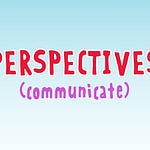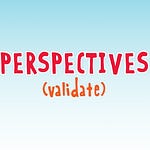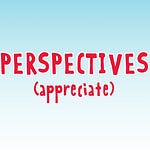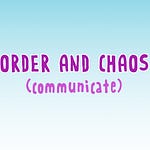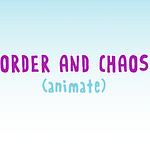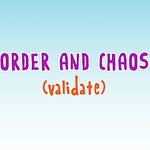Abbie: Hello and welcome to the CosmoParenting Podcast brought to you by the CMM Institute for Personal and Social Evolution. In this space, we invite you to see yourself as someone who is curious about and actively participating in creating your own meaning around parenting.
This is our ‘Validate’ episode, where in the second episode of each month we hear a parenting story, with the hope that sharing the first hand experiences of others who are parenting can make you feel seen and validated in your own experiences. Let’s begin.
*music*
Abbie: Today, I am joined by Caitlin to share a parenting story. Hi, Caitlin.
Caitlin: Hi, how are you?
Abbie: Good! How are you?
Caitlin: I am doing great. I'm excited to be here.
Abbie: I'm really excited to have you here. As you know, we are talking about patterns this month. And the way that we have talked about patterns so far- the two generalizations that we came up with- are to say that (1) patterns can be repeated or broken and also that (2) patterns allow for predictions.
That's just kind of our baseline- where we're starting to get on the same page about how we're talking about patterns, how we're understanding them in the context of parenting. So with that in mind, I would love to hear a parenting story from you about patterns.
Caitlin: Yeah. This is such a great prompt. And something I think about all of the time is, like, what patterns do I want to carry out or repeat from my childhood or my lineage? And which ones that I want to break or recreate?
When you sent the prompt over, I think one of the things that you noted was, like, a moment you felt proud of. And I told this story on my podcast, Scratch That, with Rebekah, but there was a distinct moment where Charlie and I, my four-year-old, we had a conflict.
And he had headbutted me. And we were like in bed, he asked for a show, I said no, he headbutted me in anger, and like hit my face which is a thing that we were working through. And I just instinctively, like, pushed him off of me. And we were on a soft bed and you know it's like this reactive thing, but what I didn't account for was that our dog was right there, and so he, like, head bonked the dog.
Abbie: Aww.
Caitlin: So for him it was like this very aggressive, hurtful moment. So he cried, he was sad, I, like, comforted him, and then we talked about it, and I apologized for throwing him. And it wasn't really a throw, but like for pushing him off. I mean, I apologized for that and talked about it.
And then we just kind of laid there. And then he was quiet. He was thinking. He was like, you really need to say sorry. Like, you should say sorry. You hurt me. You pushed me and hurt me, which I already had. But, like, I acknowledged it. And I was like, you are so right. I was mad. You like... hit me. You hurt my body. I was mad and I responded and I, like, pushed you in the same way that you were mad about the show and you head bonked me. And neither of those were the right response for either of us.
Abbie: Mmmhmm.
Caitlin: And so it was this really beautiful moment where I took accountability. The pattern I felt like I was breaking was I wasn't like, well, that was your punishment or that's what you get.
Abbie: Yeah. Yeah.
Caitlin: I should not have handled it in that way. You know, I should have sat up, held his body gently but firmly and said, like, we're not going to headbutt. You're not going to hit mama.
But also I'm kind of glad that it was that moment where we had this conflict and that we both could repair to each other and acknowledge that both of our responses were incorrect.
And I think us being able to hold space and to be on a similar level, like I am the parent. I, as Dr. Becky would say, I'm like the “sturdy leader” for us. And so there is a higher level of responsibility on me to keep him safe and to set boundaries. And also we are two equal human beings in relationship, and for him to be able to say, like, that was not cool, that was not right, you shouldn't have done that to me, and for me to be able to hold that and say, you're right I shouldn't have. And to be able to equate that to his behavior, which is something that is a huge pattern shift from the way that I was raised and sometimes feels really clunky. I think shifting patterns can feel so tricky.
Like, I can't ever picture headbutting my parents or hitting them because I was just too scared. I would never have acted out in some of the ways that he does. But him having the space to be a kid and to have these responses, I feel like has opened a lot of beautiful space for us to have conversation.
And he's learning how to control his body out of his own instinct of learning relationship versus out of fear and just, like, suppressing how he's feeling. Yeah. So that's a pattern that I'm just feeling really proud of, that we're working on right now.
Abbie: Mmhmm. Yeah, that is such a great story. And I imagine that that'll feel really relatable to people because, yeah, you can talk about patterns on all these different levels: there are smaller day-to-day patterns, but also intergenerationally in our own families, and then even larger, you know, like generation to generation.
I think that that'll feel familiar to people because I think a lot of people who are parenting right now, the way they were parented, like you've shared, is that their parents were not saying sorry or, like, taking accountability because there's a belief that that would look like weakness. Or there's this different understanding of a power dynamic between a parent and a child, and authority and, you know, how to act into that.
But you just have me thinking about how important modeling is. And that to me, like, that's the flip of that pattern. It's not, well, I need to have authority over you. You need to respect me as your parent. So I'll never apologize to you.
It is such a different way of thinking of like, for me, I'm like, oh, I will actually respect you more if you meet me in this way that you're describing of like, I'm, you know, getting on your level, and I'm just one person talking to another person. Yes, I'm your parent. Yes, you're four years old, but I'm giving you that respect and modeling it. So that you can return that to me.
For myself, not someone who is parenting right now, but doing a lot of reflecting on how I was parented, I think a lot about the messages or stories that I've internalized. And a lot of times I'm like, I don't think that was ever said to me. So where did that come from? And so that's why I just am like so convinced that the modeling is really important. Like, I don't think anybody ever said that to me, but I think it's what I saw happen. And so I, as the kid, because what else can you do? Make your own story about it.
Caitlin: Yeah. So much of this is unconscious and not spoken.
Abbie: Yeah. So, for me, that's what CosmoParenting is about then is, like, bringing that unconsciousness into awareness, so that once you reflect on it, if you need to, you can do something about it. You can change that pattern.
Caitlin: Yeah, I'm so excited to listen to this series because the thing that feels so important to me as a parent is understanding my childhood and understanding myself as a human, so that then I am consciously making decisions because I think as parents, it's so easy to unconsciously just, kind of, like, repeat a pattern and without ever stopping and being like, wait, what is this thing that we're doing?
Just because it has been this way or it's what my experience or memory was may not be the way I want to move forward with it. But until you can pause and, like, actually acknowledge it, they just keep repeating. And I think so much of a lot of harm is unconscious. I don't think that, generally, parents are going around wanting to cause harm to their kid.
So I feel like the work is this pause. And I feel like that's what you are doing here with this series, which is just brilliant.
Abbie: Yeah, yeah, definitely trying to be that pause. And then I'm glad to know, you know, you already referenced your podcast that you do with Rebekah, who we'll hear from next month, that you use that language of parenting and also reparenting. And that feels so important to me. So I'm glad that you're also doing what you're doing out in the world; so definitely send people your way to engage in this conversation a little bit deeper.
So Caitlin, thank you so much for sharing your story today. I really appreciate it.
Caitlin: Absolutely. Thanks for having me.
Abbie: Yeah, and to everyone listening, thank you for joining us too. Don't forget to check out www.cosmoactivities.com for all our other resources in this series. And be sure to comment on this podcast episode on the CosmoParenting Substack. We love to be in dialogue with you and we have so much to learn from each other. We're so grateful to be on this journey with you. And we will see you next week to explore some parenting best practices.
*music*




